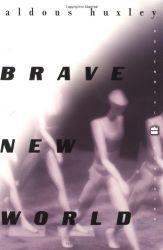
Brave New World presents a uniquely disturbing dystopia- but unfortunately, that is where its strengths end. The plot, aside from the setting, is so loosely strung together that a main character, main storyline, or even main theme is unclear. The story meanders from one under-developed character to the next and, without the support of a vivid setting, the novel would crumble. I admire the creativity behind the premise and the craft behind the writing style, but the plot simply lacks. The novel is only worth reading to delve into the vivid world that Aldous Huxley created.
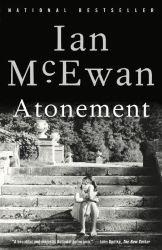
"Atonement" is the story of thirteen year old Briony and her misunderstanding of the world. It begins in the Tallis household in 1935. Obsessed with fantasy and books, she sees sinister motivations in the blossoming romance between her sister and the son of the family's house cleaner. When something terrible happens, Briony makes a mistake that will change the lives of everyone around her.
The characters in this story are all well developed, but Briony is the stand out in this regard. Her motivations straddle the line between clearly defined and mysterious. She has a clearly defined character, dramatic, self centered, and eager to please. Cecilia and Robbie are less defined, but still sympatheic and interesting. I found Robbie slightly unpleasant in the second half of the book, but it was understandable considering the circumstances.
The plot cannot be properly discussed without getting into spoilers. However, it unfolds in a clear manner. All the plot points are set up before they happen, and given proper foreshadowing. At the end, there is a plot twist. Since I highly recommend this book, I will not be spoiling the twist. However, I will say that it makes everything else that happened in the book unclear (in the best possible way).
This book contains a depiction of rape, extreme violence, and rather gruesome hospital scenes. If any of these subjects upset you, I would not recommend this book. If you are able to handle these topics, and you appricate books that focus on pyschology and character exploration, I would definitely recommend this book.
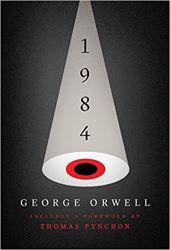
Although George Orwell crafted a rather interesting dystopia, the story he built around it largely fell flat. It was apparent throughout the novel that Orwell was more of an essayist than a storyteller; he was more interested in explaining the structure of his setting to his audience rather than showing them how that structure affects the story. 1984 suffers from hundreds of pages of blunt exposition-dumping that disconnects the reader from the characters and plot. While there is significant payoff at the end, the rising action was rather lacking in weight as the main character spends more time describing the logistics of the 1984 world rather than where he fits in it. Some aspects of Orwell's famous dystopian are intriguing, like the use of Newspeak or the new family dynamics, though it is overall disappointing.
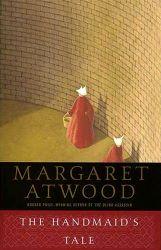
Warning: this book contains depictions of rape and violence. If either of these are sensitive topics for you, I would reccomend finding a different book.
"The Handmaid's Tale" is a story about a country that rises after the fall of America. In it, traditional gender roles are enforced by the government. Women are forced into the role of Wives, Marthas (women who clean the house), Aunts (women who are in charge of other women), and Handmaids (women who have sex with men to give them children). Offred has been taken from her husband and child, put into reducation, and forced to be a Handmaid for a commander. She makes her way through the new world while trying to keep fragments of her sanity, individuality, and happiness.
The descriptions in this book are incredible, almost poetic. The charcters in this book are all well defined, and feel like real people. Offred was a standout to me. Though she is the hero in the book, there's an inherent selfishness in her character. She has an affair with a married man. She decides not to help the resistance. She constantly mocks a woman who has been raped. Oftentimes stories will try to make a dystopia seem worse by making their protagonists innocent and pure. By making Offred so flawed, it draws attention to the fact that this treatment is unacceptable no matter who it's being done to.
The worldbuilding of Gilead is haunting. Margret Atwood has said that everything she put in "The Handmaid's Tale" has happened in history somewhere. That's probably part of why this book feels so real. Though it might seem unbelievable that a society could collapse and revert to such archaic values, looking into real life societal collapses makes it seem much more feasible.
I could talk about this book for far longer, but that would be unwise. In summary, "The Handmaid's Tale" is a wonderful, if not unsettling, read. I would reccomend it to fans of speculative fiction, anyone interested in learning about gender equality, and anyone who can handle a thought provoking read. As I said in the beginning though, this book can be upsetting at parts, so judge for yourself if you can handle that.
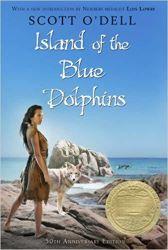
Scott O'Dell's novel, Island of the Blue Dolphins, is a fantastic book about a girl named Karana who has to learn to survive on an island all by herself. She goes through many sad and painful experiences, but also exciting and interesting ones. Karana meets many animals, and has to make a new life on her own at the island. I think this was one of the best books I have read this year, because of its unique plot and thrilling events. I definitely recommend this book to anyone who loves animals, survival, and adventure.
Reviewer Grade: 8
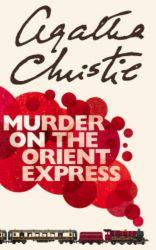
"Murder on the Orient Express" by Agatha Christie is pure murder mystery. It starts off innocently enough when Mr. Ratchett is found having been stabbed in his sleep, but the case quickly becomes more and more complicated. Hercule Periot has to struggle to find the true culprit in the mystery that gets more tangled by the second.
The characters in this book are all rather good. While none of them have outstanding depth, they are all interesting and well defined. Hercule is, of course, the standout. His methodolgy is always fun to read. The suspects cannot be discussed without getting into spoilers. Even the victim is interesting to read about.
Most readers will probably know the twist of the book (which I will not be spoiling). Still, it's wonderfully set up, and almost every piece of evidence contributes to the climax in some way. New evidence is constantly presented throughout the story. At times it was a bit hard to follow, but I'm notoriously bad at following along with mysteries.
Nothing in this story is particularly deep, but it doesn't need to be. It's just a captivating mystery story. One of Agatha Christie's best.
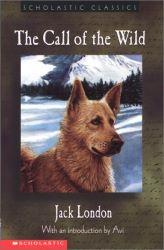
"The Call of the Wild," written by Jack London, is a novel set in Yukon, Canada during the Klondike Gold Rush. Buck, a rather large, domesticated dog, is stolen from his comfortable life and sold into the brutal world of sled dog teams in the harsh wilderness. Buck quickly learns to adapt to his new environment, tapping into his primal instincts as he navigates the challenges of survival. He forms a bond with John Thornton, a kind-hearted prospector, but Buck never feels free, and he contemplates breaking his friendship with John Thornton to escape into the wild. I enjoyed the book because I am an animal lover and I liked reading about the events that Buck endured. Subsequently, I would recommend this book to animal lovers because, after all, it is about a dog and his strive for freedom.
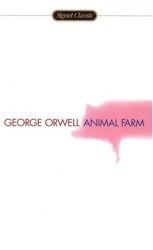
Animal Farm is a book where animals on a farm represent the Russian Revolution. The animals rebel against the farmers to try and escape cruelty and be free. But, it doesn't end up going as planned, and things start to go wrong on the farm. I thought that this book was very educational and it was interesting to see how people, who were represented by the animals, can change so fast. I would recommend this book to anyone who has an interest in history and the Russian Revolution.
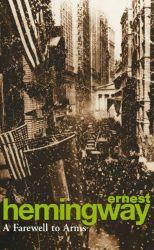
A Farewell to Arms, written by Ernest Hemingway, details the account of Frederic Henry, a medic for the Italian army during the Italian campaign of World War One. He is sent to the front lines of the war, and while he is eating dinner, a bomb explodes over him and he is injured. During his recovery process, he falls in love with Cathrine Barkley, an English nurse. Henry soon desires to leave the army and will do so in any means possible so that he can escape and be with his Ms. Barkley. I enjoyed the book because it was quite satirical, except the humor was quite advanced, so I would recommend this book to teenagers and adults. Overall, however, it was grammatically unique and I believe that I have become not only a better reader from reading this book, but a better writer as well.
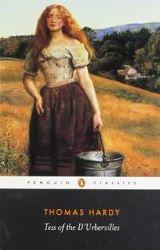
WARNING: This reveiw and this book contains discussion of sexual assult.
Tess of the D'urbervilles is an excellent book. It tells the story of Tess Durbyville, who's father has become obessed with the idea of their noble heritage. After an incident with the carriage, the family is left in financial peril. Tess agrees to work for her supposed relations. However, this leads her into the arms of Alexander D'urberville (who is not actually related to her).
Tess herself is a great protagonist. She's well defined as a dreamer who is devoted to her family. Both of these traits help her, but cost her dearly. Alexander is a more complex antagonist than you'd first assume, while still being hatable. Angel Clare is a good character as well, he has well defined traits, but I was not able to end up liking him. He admits to not being a Christian, and not believing in all of the doctrines of the Bible (just to clarify, almost all of today's Christians would take issue with the way Angel treats Tess). Furthermore, he openly admits to his parents that he does not have the same beliefs he does. Yet, he still abandons Tess because of these beliefs (that he doesn't have).
That brings me to the major problem. Tess is constantly thinking about how Alexander is her true husband, and how she is ruined. While these are realistic things for someone in her predicament to think, I felt that the book does not take a strong enough stance against these beliefs. If it wasn't for this, I would have given the book 5 stars (if I had the option, I would have given it 4.5). Tess of the D'urbervilles has excellent prose, shocking twists, tragic moments, and great character progression. If you are not uncomfortable reading about sexual assault and you enjoy classic literature, I would recommend this book.
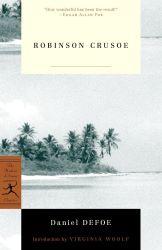
"Robinson Crusoe" is a fictional novel by Daniel Defoe; telling the story of Robinson Crusoe, a young Englishman who becomes stranded on a deserted island after a shipwreck. The novel follows his solitary existence as he learns to survive, building shelter, finding food, and adapting to the challenges of his new environment. Over the years, Crusoe encounters both moments of despair and triumph, offering readers a captivating tale of resilience, self-reliance, and the indomitable human spirit. I was fascinated by this book; if I were to compare it to another book I would say that it is the grown up version of Hatchet (written by Gary Paulsen). I would recommend this book to anyone who enjoys a good adventure novel.
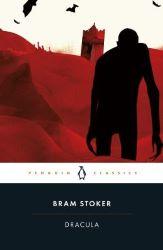
Dracula, written by Bram Stoker, is a fictional account of a vampire hunt in Transylvania. Jonathan Harker, a lawyer, is sent by his boss to Castle Dracula to assist in a real estate transaction with a wealthy man named Count Dracula. However, he is soon not allowed out of the castle, and slowly he realizes the the Count is no ordinary man. Harker manages to escape and eventually teams up with a colleague to hunt down Count Dracula. I enjoyed the book, it was full of complex back stories that merged into one beautiful crescendo: the hunt of the Count. I would recommend this book to anyone wanting to expand their vocabulary, as the book is rich with complex words and sentences. I would also recommend this book to avid readers; (as it is a classic) it should be ensured that to be a genuine reader one must read this famous work of art.
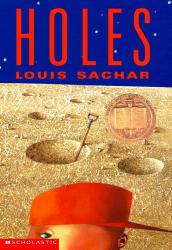
Holes by Louis Sachar is a piece of young adult fiction that weaves together elements of mystery, adventure, and coming-of-age themes. The novel's plot centers around Stanley Yelnats, a young boy who is sent to a juvenile detention camp after being falsely accused of stealing a pair of shoes. At Camp Green Lake, Stanley is forced to dig holes in the desert as part of a rehabilitation program, leading him to uncover a mystery that has haunted the camp for generations. Sachar's portrayal of Stanley and the other boys at Camp Green Lake is one of the novel's strongest qualities. Through their interactions and experiences, Sachar explores themes of friendship, loyalty, and the importance of perseverance in the face of adversity. Stanley's transformation from a timid and isolated boy to a confident and capable young man is both inspiring and heartwarming. This novel is very appealing due to is humor, unexpected backstory, and suspense that kept me hooked throughout. The novel's themes of friendship, perseverance, and the importance of doing what is right resonate with readers of all ages and make it a true gem of young adult literature, I'd recommend it to all!
Reviewer Grade: 11.
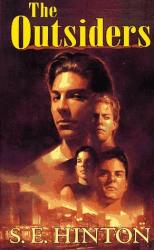
The Outsiders by S. E. Hinton is a timeless classic that explores the lives of teenage boys growing up in a society divided by socioeconomic class. The novel's plot centers around Ponyboy, a member of a gang known as the "greasers," who are constantly at odds with the wealthier "Socs." When Ponyboy's best friend Johnny kills a Soc in self-defense, the gang is forced to go on the run, leading to a series of events that force Ponyboy to confront the harsh realities of his world. Hinton's portrayal of Ponyboy and the other greasers is one of the novel's greatest strengths. Through Ponyboy's eyes, we see the struggles and challenges of growing up in poverty, dealing with absent parents, and trying to find a place in a world that seems to be against you. The characters are all fully developed and unique, each with their own backstory, motivations, and distinct personalities, adding depth and complexity to the story. Hinton's portrayal of the greasers' bond highlights the importance of having a support system, even in the face of adversity. Additionally, the novel explores themes of social inequality, prejudice, and the challenges of coming of age in a world that is often unfair and unjust. I really enjoyed the authenticity of this novel through the abundance of dialogue and interactions between characters. I highly recommend this book as The Outsiders resonates with readers of all ages.
Reviewer Grade: 11.
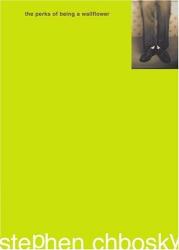
The Perks of Being a Wallflower, written by Stephen Chbosky, is a coming-of-age novel that explores the complexities of adolescence and the struggles of navigating social and emotional challenges. The novel is narrated by the protagonist, Charlie, a high school freshman who is struggling to fit in and find his place in the world. Charlie is a sympathetic protagonist, with his struggles with mental health and social anxiety serving as a powerful critique of the challenges of adolescence. His relationships with his friends Sam and Patrick provide an exploration of the complexities of friendship and the ways in which it can provide a sense of belonging and acceptance. Chbosky combines elements of romance, personal drama, and coming-of-age themes to create a plot that is emotionally resonant and suspenseful. The novel's themes, particularly mental health and the effects of trauma, are poignant and impactful, with Charlie's struggles serving as a critique of societal marginalization and stigmatization. Chbosky's descriptions of Charlie's thoughts and emotions are vivid, immersing readers in the experience of living with mental illness and navigating social and emotional challenges. His use of literary devices, such as symbolism and foreshadowing, adds depth and meaning to the story that kept me engaged throughout. While this book was heartwarming, it was also heartbreaking and took me on a roller coaster ride of emotions. I would recommend this novel to all who love a sappy, coming of age, insightful read that gets you thinking about life.
Reviewer Grade: 11.
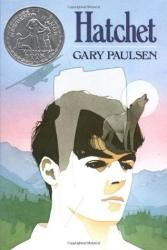
Hatchet, written by Gary Paulsen, is a fictional account of Brian Robeson. Brian, traveling by bush plane to see his father, is quite nostalgic and sad, as his parents had recently divorced. However, this all changes when the pilot has a heart attack and dies. Having no clue how to obtain help and low on gas, Brian, with little previous experience, manages to crash land the plane into a lake. Brian swims to shore and collapses, exhausted. Brian spends several days recovering from the crash before realizing his extreme hunger, which motivates him to be proactive and use all of his resources, including a hatchet, to find food. I would recommend this book to people who like adventure, as well as those who are (and are not) resourceful. Paulsen teaches the reader that it is not what one physically has that determines success, but rather, what one mentally has.
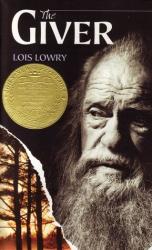
The Giver by Lois Lowry explores themes of individuality, memory, and conformity in a dystopian society. Set in a world where pain and suffering have been eliminated, the story follows Jonas, a young boy who is chosen to become the Receiver of Memory, a role that involves experiencing the past and holding the collective memories of his society. Jonas is a sympathetic and relatable protagonist, with his experiences and struggles serving as a lens through which the reader can explore the world of the novel. The plot of The Giver is very compelling- Lowry’s exploration of memory and its role in shaping identity is particularly well-done, with her depiction of the ways in which the absence of memory can lead to conformity and complacency providing a powerful critique of authoritarian societies. The climax of the novel is both suspenseful and poignant, with Jonas’ actions serving as a powerful statement about the importance of individuality and freedom. Additionally, Lowry’s writing style is both elegant and understated, perfectly capturing the voice of a young boy struggling to make sense of the world around him. To me, The Giver was a fantastic book because of how much it made me think and consider the world around me, and because of how intriguing the contrast between Jonas's dystopian society and the view into the past was. I would highly recommend this book to any and all dystopian lovers.
Reviewer Grade: 11.
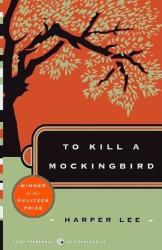
To Kill a Mockingbird by Harper Lee explores themes of race, justice, and morality through the eyes of a young girl in a small Southern town. Set in the 1930s, the novel follows Scout Finch as she grows up and navigates the complex social and political landscape of Maycomb, Alabama. The plot of To Kill a Mockingbird is both compelling and emotionally resonant. Lee’s exploration of racism and prejudice is nuanced and insightful, offering a powerful critique of the social and political systems that perpetuate injustice. The trial of Tom Robinson, which forms the center of the novel, is both tense and heartbreaking, with Lee masterfully building tension and suspense as the case unfolds. This novel is very heavy in symbolism and encapsulates the perspective and voice of a young, naive girl very successfully. I enjoyed the wide variety of characters, bits of humor, and overall depth of meaning and thought that To Kill a Mockingbird provides. Overall, it was a very thought-provoking and deep read, perfect for classic lovers and those who enjoy realistic fiction.
Reviewer Grade: 11.

Fahrenheit 451 by Ray Bradbury delves into the dangers of a society where books are banned and critical thinking is discouraged. The novel follows protagonist Guy Montag, a fireman whose job is to burn books, as he begins to question the oppressive society he lives in and seeks to uncover the truth about the value of literature. The plot of Fahrenheit 451 is both compelling and thought-provoking- Bradbury’s dystopian world is entirely possible, and his exploration of the consequences of censorship and intellectual suppression can be easily applied to modern times. The story is driven by Montag’s journey of self-discovery, which is filled with twists and turns that keep the reader engaged until the very end. Bradbury’s writing style is poetic and evocative, bringing the world of Fahrenheit 451 to life with vivid descriptions and metaphorical language. His use of symbolism is particularly effective, as he weaves in recurring motifs such as fire, the mechanical hound, and the phoenix to add depth and complexity to the story. The novel is also structured in a way that mirrors Montag’s journey, with the pace and tone shifting as he becomes more aware of the world around him. Overall, Fahrenheit 451 is a very thought-provoking and symbolic classic that really makes you rethink the value of intellectual freedom and education. Every time I read it, I recognize more symbols, hidden meanings, and references that really enrich my experience. I enjoyed this book very much and would recommend it to anyone interested in dystopian, mind boggling novels.
Reviewer Grade: 11.
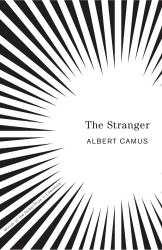
Against all odds, this book bored me. The Stranger follows an indifferent man shortly after the death of his mother, of whom he is accused of having no care or affection towards. Meursault is far too agreeable for his own good, and it pulls him into relations with Raymond, who seeks revenge on his lover for cheating on him. As Meursault cares little for the romantic or violent developments in his life, he relates these events to the reader in a painfully dull manner. Every description is matter-of-fact and insignificant; Camus reveals nothing else about the narrator until the very end of the novel. Until then, the reader is dragged painstakingly through a drab recount of Meursault's life as if it belonged in a dictionary. The book, thankfully short, seemed to stretch on far past its actual runtime. I do appreciate that Meursault can be funny on rare occasions, but never in a way that feels purposeful. Overall, I'm disappointed with this book, and I wish the non-feeling narrator had been written with more depth.
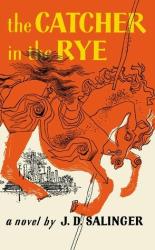
The Catcher in the Rye by J.D. Salinger is a timeless classic that explores the complexities of adolescence and the search for identity. The story follows the life of the main character and narrator, sixteen year old Holden Caulfield, over the course of two days after he has been expelled from prep school. Disillusioned and struggling to come to terms with the world around him, Caulfield's story is masterfully told through Salinger's unique and captivating writing style that immerses the reader in Holden's world and captures the essence of teenage angst and rebellion. This classic novel is unlike any other that I have read, containing several humorous instances and a main character with a very strong personality that kept me hooked. Holden's interactions with his family, friends, and strangers are both funny and poignant, highlighting the challenges of growing up in a world that often seems confusing and unfair. Overall. The Catcher in the Rye is one of my all-time favorite pieces of classical literature that resonates with many age groups and provides for a very interesting read. I have read this novel at least five times and have yet to tire of it.
Reviewer Grade: 11.
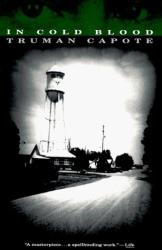
Truman Capote's In Cold Blood is a true crime account of the 1959 murder of the Clutter family in Holcomb, Kansas by the criminal duo Dick Hickock and Perry Smith. Capote's unique, journalistic writing style creates an intriguing narrative that blurs the line between fact and fiction. In my opinion, part one of four starts the book off a bit slowly, and Capote includes a lot of extra details that make the book seem longer than it is. However, once the book transitions into the backgrounds and motives of the killers and moves on from introductory information, it is quite a thought-provoking read. Capote's portrayal of the murderers is particularly fascinating because he delves into their motivations and psychological states in a way that is both haunting and insightful. This novel explores themes of morality and the American Dream, which are easily connected to modern day society. Overall, In Cold Blood is a must-read for anyone interested in true-crime and journalism, as it offers a unique and suspenseful account of one of America's most notorious crimes. I enjoyed reading this novel, although just one read was enough for me.
Reviewer Grade: 11.
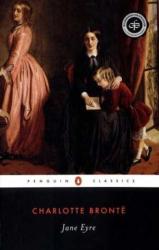
Charlotte Bronte's Jane Eyre is one of my favorite pieces of classical literature that explores the human experience through the story of an orphaned young woman, Jane Eyre, who remains steadfast in her beliefs despite the challenges she faces. Bronte's writing style is emotional and descriptive, immersing the reader in a detailed and symbolic representation of 19th century England. The novel's structure is well-crafted, with each chapter building upon the last to create a story that is hard to put down once you're reading. The character development is impressive, with Jane and supporting characters adding depth and complexity to the narrative. The novel explores universal themes of love, morality, and social class, making it a timeless classic that truly can resonate with any reader. Jane becomes a relatable character throughout the novel as she overcomes a variety of issues, and I found most of the drama she was involved in to be both intriguing and entertaining. Overall, Jane Eyre is a must-read for anyone who appreciates a good story or classic literature, especially one that explores coming-of-age and romantic ideas. Personally, this is one of my favorite novels across any genre as I have read it multiple times.
Reviewer Grade: 11.
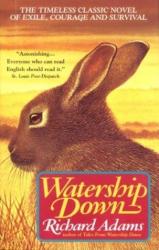
This is a book designed for lovers of Xenofiction (books from non-human perspectives). "Watership Down" is a book about a warren of rabbits. Hazel's brother Fiver has a disturbing vision that prompts him and others to leave the warren. Along the way they run into other, sinister warrens. Interwoven with the story, short segments describing the mythology of El-ahrairah ( a figure similar to Robin Hood).
Some may be familiar with the violent reputation of "Watership Down". This is an earned reputation. Although no main characters die, they do suffer grievous harm. Aside from that, there is a vivid and disturbing description of the original warren's description. However, I felt that the most disturbing parts of the books were the parts exploring the almost dystopian warrens the group meet. If you plan to read this book, keep this in mind. Do not read this if you are sensitive to violence.
If you can get past the disturbing content, this is an excellent read. The characters are incredibly charming. Hazel is an inventive leader, who sometimes acts recklessly to show off. Fiver is a timid rabbit who has glimpses of the future, based on the famous Greek oracle Cassandra. Bigwig is a gruff ally, who occasionally doubts Hazel's leadership, but has a big heart. The plot is equally as interesting, leaving me anxious at parts when things seemed to be going eerily well. The segments regarding El-ahrairah are also entertaining, giving insight into the rabbit culture.
All in all, if you aren't sensitive to violence, I would definitely recommend trying this book.
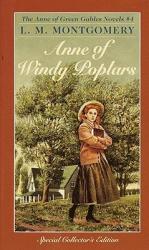
When Anne finishes her schooling at Redmond, she decides to start a new life away from Green Gables. She finds herself in her tower room at Windy Poplars, befriending two old widows, Aunt Kate and Aunt Chatty. She arrives at Windy Poplars looking for a job. She gets one as the principal of Summerside High School. Anne is then made aware that she was not the person they wanted as the principal, but they couldn’t find anyone better. Over time, Anne also becomes friends with the housekeeper, Rebecca Dew. Anne loves her students, but she greatly misses her lover, Gilbert Blythe, who is currently in medical school. Anne of Windy Poplars is a book in the Anne Of Green Gables series. It was less interesting and active than the other books, but it had a decent plot. I am a person who likes action and drama, but this novel did not satisfy me. Contrasting to the other books in the series, it was very drawn out and not very suspenseful. It left me with the urge to not continue reading. I want a book that makes me want to read more and never stop, but this did not meet those expectations. The only reason I kept reading was to keep the series going. I finally finished the book, and I’m glad I did. The storylines following Anne of Windy Poplars were much more interesting, but the books later on had flashbacks and connections to it.
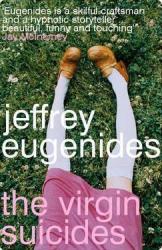
The Virgin Suicides is the elegy of the Lisbon girls, from the perspectives of the neighbors that are still haunted by them. The Lisbon family lives on a quaint suburban street in the Sun Belt, drenched in sunlight and white-washed shingles. Then one year, every Lisbon girl, starting with Cecilia and ending with Mary, commits suicide. This book is the observations and meditations of the boys across the street, the ones who loved them, who obsessed over them, who objectified them, and who watched them die one by one. The girls are doomed from the opening lines. The only question that remains is why they did it, and why our narrators can't let them go.
I read this book because I was told it was a staple of dark academia. It is not, no one here likes school. In reality, it is a treatise on girlhood, in all its insubstantial suffering. The first thing that struck me was the way the author sets the mood immediately. The entire book is dripping with malaise, the suffocating nature of sisterhood and parenthood on full display whenever the Lisbon house is described. The brief gasps of outside life are bright and crisp, while the references to the current day, middle-age life of the narrators is sad and listless. I wouldn't say this book is pleasant to read, but it is gripping in its complete commitment to its mood and setting. On that note, the choice of the author to tell the story entirely from outside perspectives was fascinating. The narrator is only described as "we", as the group of neighborhood boys who obsess over the girls in both childhood and adulthood. One conflict in the book is wondering if we are meant to sympathize with the boys who are scarred from the suicides, or see them as a commentary on the ways that the world seeks to capture and define teenage girls. I ended up seeing it as the latter, which likely made me view this book in better light than many of my peers. The boys actions always have an air of perversion about them, and at the end they seem to realize that all their breaches of privacy and decency have brought them no closer to understanding the girls. Another thing I liked about this book is the way that the girls are given a kind of privacy of thought from the narrators and the readers. Every attempt at scrutinizing their reasoning or emotions or motivations is always followed by a caveat. Nothing is certain with the Lisbon sisters, just the way nothing is every certain when we view the actions of others. The unknowability of their tight knit group gives them a dignity that their neighbors and community seem to want to violate constantly. This book is also a clear censure of suburbia. The neighbors try to do their best to help when they can, but still grumble amongst themselves about the Lisbon family leaving the leaves in their yard the fall after their youngest commits suicide. The great debutante balls and dances of the south are in full swing, but there is an undercurrent of corruption and distortion to the dancing and dating. The sexualization of the girls is also rampant, which, again, makes the book a lot harder to enjoy if you don't see it as a choice by the author in order to comment on it. In short, the suicide of the girls seems like a catharsis, a response to the disgusting and decaying world around them. Everyone around them represses their emotions, from their parents to the boys enraptured by them to their teachers to their peers. They are the only ones who get to set something free. The juxtaposition of the wailing EMTs to the quaint, straining neighborhood further demonstrates their freedom, even in their death.
This book did have problems. A lot of stuff is uncomfortable to read, even if viewed as a deliberate choice. The story often takes winding tangents that serve little purpose besides demonstrating the boredom and trivialities of suburban life. Still, the book is still a fantastic meditation on what its like to be a teenage girl, in all the wonderful and ghastly ways. I would recommend this book to anyone who is looking for good setting, shocking stories, and a good mystery to carry with them!
Reviewer Grade: 12
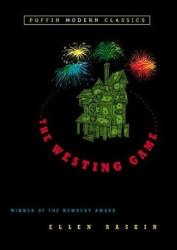
The Westing Game is a very eventful book with lots of twists and turns. It starts out as a novel about an old rich man who ‘died’, Sam Westing. All of his heirs live in Sunset Towers and are competing in a game he made. In his will, Westing claims that one of the people that resides in the tower killed him. All of his relatives get assigned another family member they have to work with as a partner. The groups start finding and solving clues, one leading to another and making each family suspect each other throughout the whole game. His heirs are hoping to gain control of his business and win millions of dollars through the game, which they will split with their partner. I really liked this book because of all the mystery and obscure details that lead you to the answer. Who set the bombs? Who REALLY killed Westing? Why did Turtle cover up for Angela? Did he even die? Are Sam Westing, Sandy McSouthers, Julian Eastman, and Barney Northrup hiding something? The suspense draws you in, and leaves you wanting more and questioning everything. I would highly recommend this book for any young and curious reader.
(Grade 7)
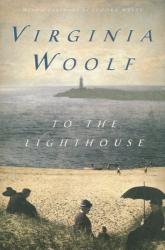
Sometimes, a trip to the lighthouse can take the entire life. Or our life is just one long journey to the lighthouse. Sometimes we don’t even realize how much we are in need of light that we see every night out of the window. We may not even notice how it directs us and helps not to get lost in this misty world. But what happens if this light disappears? We are left with two choices: either go on search of if, following the illusive glance, or find it inside of your soul.
Virginia Woolf’s novel “To the Lighthouse” introduces the readers to the Ramsay’s family and their friends, staying in the summer house in Scotland. As they are going through daily routines, we discover their personalities and stories, so different and unique. They agree and disagree with each other, inspire and discourage, give hope and take it away, create and ruin. Their days flow as usually until the light disappears from the house. It seems like it’s possible to turn everything back and keep the life normal, but everyone can’t help noticing the missing part, until the characters go on their own trips to the lighthouse.
The story is mainly written in a form of reflection. Virginia Woolf lets the readers see the characters and percept the world of the book through two of her main characters’ points of view. It shows, in an unobtrusive manner, how people depend on those whom they are surrounded with. The language of the book is figurative and complex, just as lives of its characters. It plunges the readers into such an atmosphere, where cold Scottish wind keeps your hands numbed, as you are walking down the coast, but the thought of someone caring about you does not let you freeze from inside.
An amazing book that will turn the time of reading it into a very special period of life
Reviewer Grade: 12
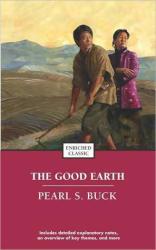
The Good Earth follows a man named Wang Lung accompanied by his wife, O-Lan. This story is told surrounding China in the early 20th century told in a classic rags to riches tale. Important themes are told through this story to express what China in the 20th was going through and challenges the people had to face. Some of these themes include the oppression of women and man’s relationship with the earth.
I have to admit, the first time I read this book I didn’t really like it. After talking to someone about the book, I decided to read it again and recognized its importance. Not only is the book informative, but it’s also an all around good book. There are many different plot points and character development pieces that go into this story. While reading it, it made me think… is this what people had to endure in China in the 20th century? Knowing this, it pulled at my heart strings a little bit. I absolutely love this book and would recommend.
Reviewer Grade: 8
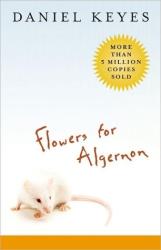
Flowers for Algernon is stunning commentary on the way society perceives intelligence and its connection to personal value. The creative liberties taken with this book to modify diction to match Charlie Gordon's knowledge create a more personal connection with the beloved narrator. I found myself celebrating the first time he used a comma or a metaphor. Although this book was difficult to read at first, I understand that those creative choices enhance the impact of the story later on in the book. The reason I wouldn't call Flowers for Algernon perfect is I feel some of the development in the middle diverted from his climactic conversations with the doctor and professor. The story seems to split into two at once: one of Charlie's emotional intelligence struggling to keep up with his knowledge, and one of his environment's reactions to his sudden genius. Though I enjoy both perspectives, I feel the conjunction creates clutter in what could be one flawlessly streamlined story. However, both stories are executed beautifully, and the journey of Charlie Gordon is both profound and emotionally charged. Flowers for Algernon is certainly a novel I'll mull over in years to come.